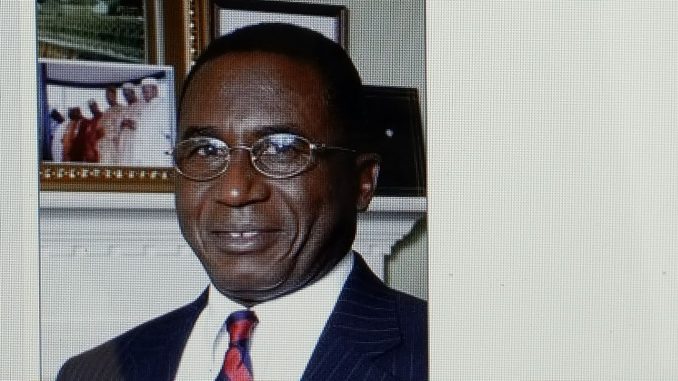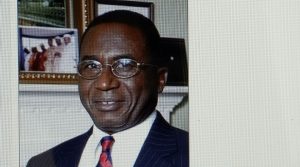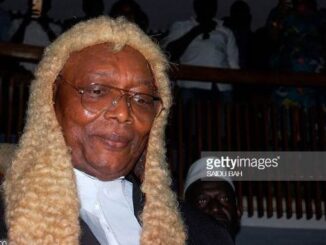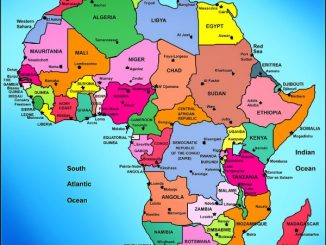
By Dr. Yahya Kalokoh :
African Party Politics with specific reference to Sierra Leone reflects promise of economic growth as well as inertia. From a historical perspective, the DNA of electoral party politics in Sierra Leone is not primarily centered on issues of socio-economic change, but rather on economic mismanagement, corruption, and tribal or regional affiliations. Such transitions have led to military coups, and violent conflicts seen by some as vehicles to effect change or providing alternatives to the status quo.
One could argue that the main focus on economic mismanagement and corruption obscures the fundamental solution to the problems Sierra Leone faces. From the perspective of various transitions that took place in the country, i.e. military coups and violent conflicts, the country is still suffering from the culture of corruption. In essence these transitions have not effected the desired socio-economic and political changes needed to overcome the main threat facing the nation. A rethink is needed, and one very promising strategy would be in the form of leveraging the development and nurturing of a specific demographic group, the young of society represented for the most part by Millennials.
Millennial participation in politics and political decision making has been relatively low compared to Baby-Boomer generation of politicians who reflect no desire to retire from active politics. The political activities of such an older generation of political elites is somehow contributing to the disenfranchisement of young people from the mainstream political system. Young men and women are becoming disillusioned with political leadership and institutions. Part of their frustration is centered on the absence of cohesive policy development directives to help organize them in cultivating a future they would view themselves part of.
It is a common belief that the youth represent a large segment of tomorrow’s leadership, a demographic group in the 21st Century with a tenacity and willfulness to help shape society. But the problem lies in how to define the future. It is not foolhardy to speculate that the present bears fruit for the future and for the future to blossom, the present must reflect a capacity to sow the seeds for a promising future. It is important to beg the question since in the post-independence period, with over half a century now, we still see some of the old guard actively clinging on to leadership positions of power in party politics, and not showing any signs of retiring. Based on that perspective, the youth are relatively disadvantaged in their pursuit of future leadership.
In fairness, historically politicians of various stripes in every part of the world do not want to retire from active politics or positions. In advanced democracies, one could find the longest serving politicians in countries like the US, Britain and in many African countries. Sierra Leone is not an exception. But what is unique in Sierra Leone is the behavior of the older generation of politicians crisscross party lines opportunistically for personal gain in the government of the day. There is evidence of this in both the main parties, APC and SLPP, during Siaka Stevens, Joseph Momoh, Tejan Kabba, and now Ernest Koroma regimes. Interestingly, and in most cases, it has been the main players, e.g. Sama Banya, Late J. B. Dauda, Late Thaimu Bangura, and many others. This behavior in many ways deprives younger generations from assuming leadership positions in the higher echelons of political power and administration of the country.
One unfortunate issue that has made it difficult for the old guard to retire and provide space for the young is the culture of corruption. This is a culture which permeates every section of society. Interestingly, some often find it convenient to ignore its existence and destructive nature to society because of personal reasons, or self preservation. There are some who have come to accept it as inevitable or a way of life in Sierra Leone society. But there is a large group of Sierra Leoneans who see corruption as society’s greatest evil and needs addressing, but do not know how to combat it. On the other hand there are some who believe combating and overcoming corruption requires the annihilation of a particular socio-political demographic, the Baby-Boomer political class, who have proven to be adept at changing political parties whenever they find it economically convenient to do so. From their perspective this particular political elites have no core values, and can do anything to dominate the political scene using whatever means, until they run out of oxygen.
As radical and self-defeatist some of the arguments may sound, there is much anxiety in society for something to be done differently to combat and overcome this socio-political and economic menace. Diverse demographic entities in Sierra Leone society believe the behavior of the Baby-Boomer political elites does not represent their interests, or the interest of the country. To a very large extent, they feel it is this very class that is perpetuating much of the ills in society, i.e. poverty, barriers to education, unemployment, diverse forms of discrimination, age and ethnicity. What is feared by many in this regard are the legacies of the corrupt culture that is passed on, and the incidence of copycats in generations to come.
Rather than just saying the youth represent the future of the country, meaningful efforts must be made to enhance formal groupings that can invigorate political activism of the youth. Participation of Millennials in formal institutional political processes must be encouraged to an appreciable level for them to fairly compete with the Baby-Boom generations of politicians. There are many smart and intelligent young men and women today in our midst that can do much better than many of the older generation of politicians. One of their greatest advantages is their understanding of technology, its management, and its role in governance and economic development. This is one significant weakness some of the baby-boomer politicians suffer from.
Not until recently has there been a semblance of an opening for the youth occupying senior positions of leadership, in the Cabinet, Parliament, the Diplomatic Service, and other institutions, vice the category of political “youth violence” activism that used to define them especially during the Siaka Stevens and S. I. Koroma era. It was shameful in those days to see adults in their 40s or 50s identifying themselves as “youths”. These were merely mercenaries of doom and violence. That period represents the cradle for the breakdown of law and order in our country. Politicians exploited the naivety of the youth to build cadres of monstrous entities answerable only to political power, and not law and order institutions. Separation of powers was eroded by the executive branch. The youth in that era represented a neglected demographic, with unimaginable levels of poverty, illiteracy, high rates of unemployment, and crime.
But with a semblance of more diversified youth involvement in public policy and decision-making, arise new challenges. Much of these challenges relate to the political culture of the past and present, old thinking, slowly seeping into the psyche of the new comers. The challenges reflect a divorce from upholding the tenets of patriotism, leadership, the responsibilities and obligations of being a civil servant, the love of country, and people. The current Minister of Youth Honorable Bai Mamud is making efforts aimed at enabling a youth generation with the capacity to formally organize young people in organizational leadership. However, lots of efforts are needed in this direction; efforts that should not only aim at organizing, but more importantly imbuing a culture of patriotism, ethics in service, and missions to uproot decades’ old culture of corruption and malfeasance.
To be fair, this is not a culture one would expect to disappear overnight. But real investments in law and order institutions, accountability, and transparency, will go a long way in strengthening the resolve of the beauty of leadership that will be really interested in having a clean break with the less desirable past. In attempts to minimize or overcome the culture of corruption, the building of a millennial political leadership must be partnered with building stronger socio-political and law enforcement institutions to tackle corruption.
Moreover, enhancing active youth participation and overcoming the culture of corruption and impunity in government requires robust leadership initiatives geared towards investing in innovative public-policy programs, school curriculum changes, and training with emphasis on youth empowerment and democratic governance. With an acknowledgment of socio-political and economic corruption prevailing within governance, emphasis on youth empowerment must be geared towards the design and implementation of independent youth centered initiatives and partnerships, stressing the significance of politics and economics in governance and nation building.
A bolder strategy must involve creating quotas of Millennials as parliamentarians in government. In the current government we have witnessed the elevation of gender using an estimated 30% proportion of women in Parliament and in governance. Genuine efforts must be made to absorb an appreciable number of young men and women in the Sierra Leone Parliament. The next government must start thinking of recruiting and electing Millennials comprising of at least 40% of total parliamentary representation. Leaders of the main political parties must ensure an appreciable number of Millennials win primary contests to compete and win parliamentary elections.
Candidates for Chairmanship of Parliamentary Committees, cabinet positions, and other strategic government institutions, e.g. NASSIT must be screened to ensure they have the capacity to lead and safeguard the interests of country, rather than just payback incentives for party loyalty. The measure of length of service to a particular party must be backed by past accomplishments in society. People have to be thoroughly vetted to ensure they have what it takes to lead. Community organizing skills and length of service must be backed by upright character traits. Law makers must be people of character, and not the kind of people who will be using networks to win positions primarily to make money for themselves and mortgage the interests of the country. Appreciable quotas of Millennials must be considered in manning some of the strategic leadership positions. It is only by considering and actualizing these measures that the country will start turning its back on the culture of corruption and impunity. Success in these areas could lead to a rethink towards socio-economic change, change in attitudes, and equipping the young men and women of our country for 21st Century leadership challenges. If we accept that the young represents the future, then let us reflect the level of sincerity needed to actualize that, instead of lip service.
May God continue to bless our country, and provide our leaders the moral direction to effect socio-economic change and prosperity.




